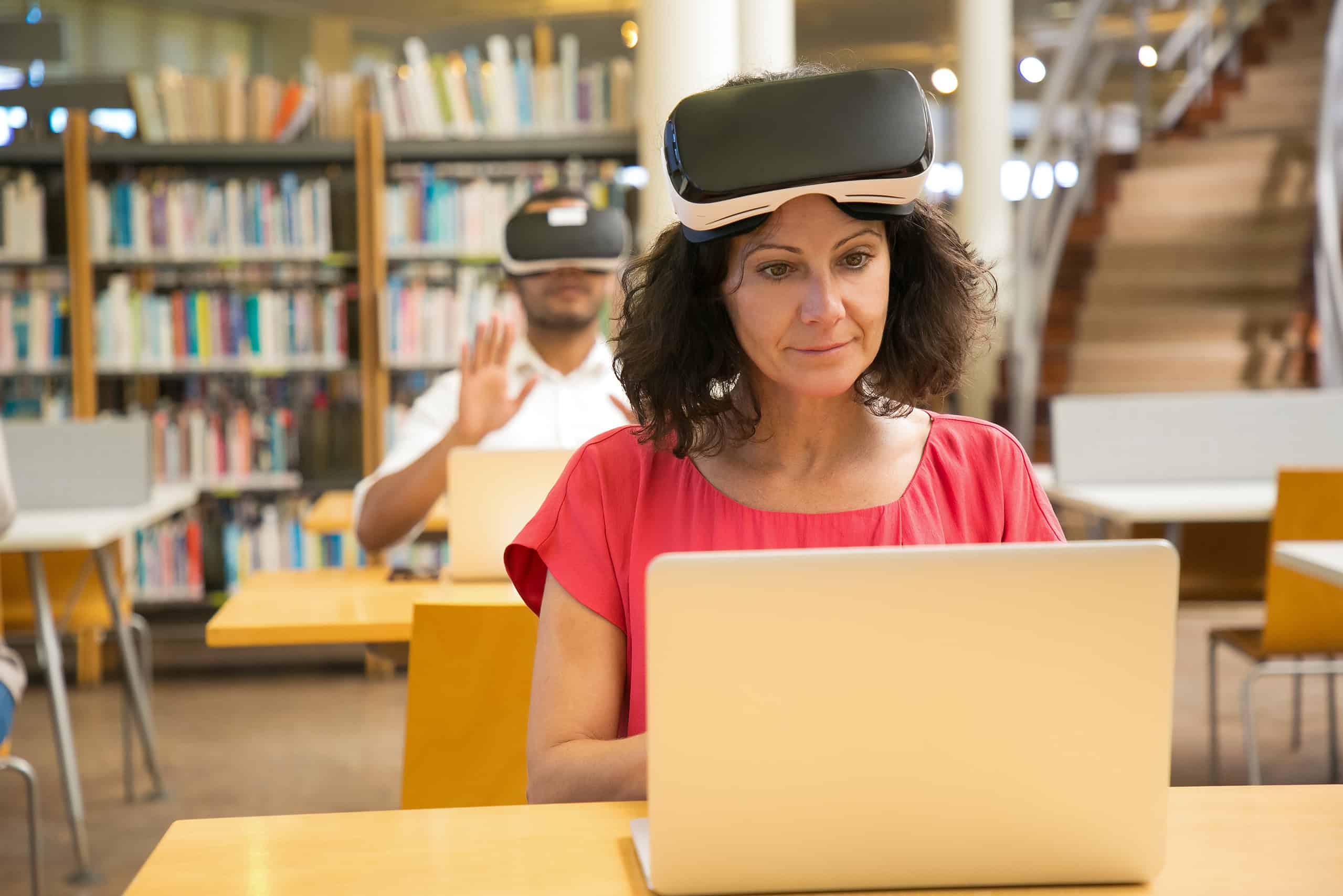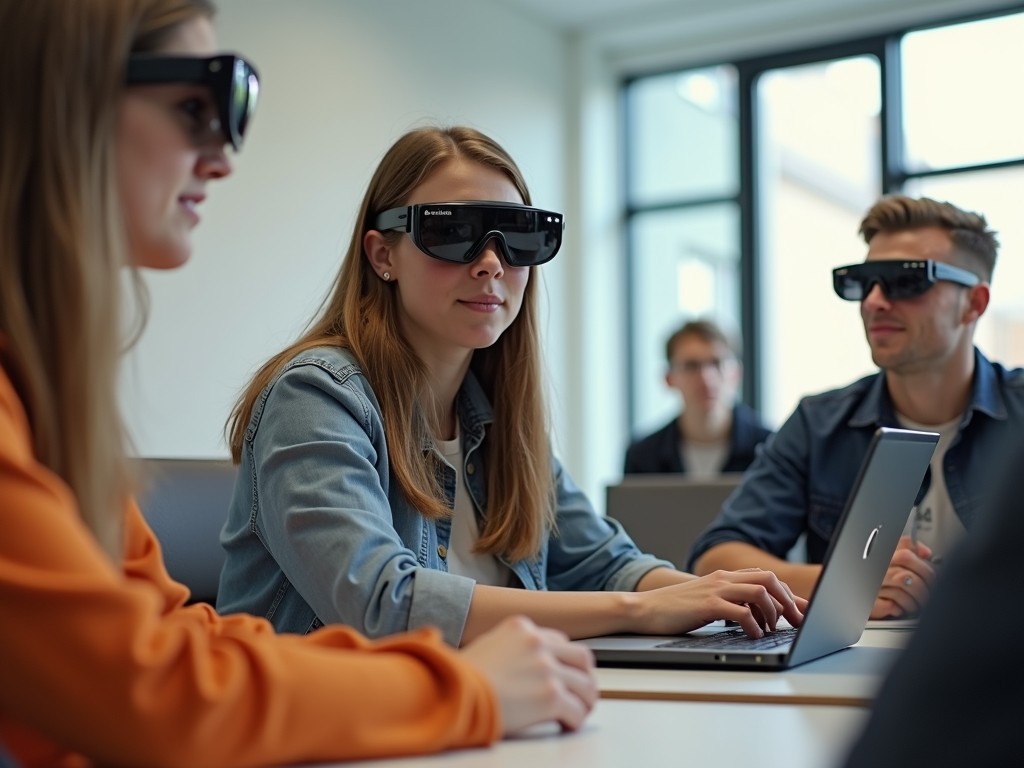
The Future for Deaf Students Through AI-Powered Accessibility in Higher Education
- Posted by Cicada Sign
- Categories Blog
- Date December 20, 2024
- Comments 0 comment
The advancement of Artificial Intelligence (AI) is making higher education more accessible than ever before. For Deaf and hard-of-hearing (HoH) students, innovative AI tools are breaking down barriers, leveling the playing field, and transforming the academic experience. From real-time captioning to interactive avatars and adaptive learning platforms, this post explores how AI-powered accessibility tools are paving the way for inclusivity and academic success.
Revolutionizing Access Through AI Tools
1. AI-Powered Captioning Tools
AI-driven captioning technologies are game-changers for Deaf students attending lectures or conferences. Platforms like Ava provide real-time, highly accurate captions for live lectures, ensuring students don’t miss a word. Unlike traditional transcription tools, Ava adapts to accents, jargon, and background noise to create seamless transcripts.
- Learn More: Ava
2. Virtual Sign Language Interpreters
While human interpreters remain invaluable, AI is stepping in to supplement accessibility with sign language avatars. Tools like KinTrans provide real-time translation from spoken language to sign language through visual AI algorithms. This can be especially useful in classroom settings where human interpreters may not always be available.
- Learn More: KinTrans
3. Personal AI Assistants for Deaf Students
AI-powered tools such as Otter.ai combine transcription and note-taking capabilities. Deaf students can record classroom lectures, and the AI generates organized, searchable notes in real-time, making it easier to study and revisit content.
- Learn More: Otter.ai
4. AI-Driven Sign Language Recognition
Platforms like SignAll focus on recognizing and translating sign language into text or spoken language. This AI technology not only supports Deaf students in academic interactions but also raises awareness among educators about the importance of signed communication.
- Learn More: SignAll
5. Augmented and Virtual Reality (AR/VR) for Deaf Education
The integration of AI into AR/VR environments is creating immersive learning experiences. For instance, apps like ImmerseMe allow students to learn languages, including signed languages, by interacting with AI avatars in virtual scenarios. These technologies are especially valuable for Deaf students who benefit from visual learning.
- Learn More: ImmerseMe
Bridging the Gap Between Technology and Education
AI tools not only make learning more accessible but also bridge the gap between students and educators. With adaptive learning platforms like Coursera and edX, Deaf students can personalize their learning experiences by choosing captions or transcripts in their preferred formats. Furthermore, AI analytics help educators understand how Deaf students interact with course materials, enabling them to adapt their teaching methods to better serve all learners.
Challenges and Ethical Considerations
While these advancements are promising, challenges remain. AI technologies often rely on extensive training data, which may not fully represent the diversity of sign languages and accents worldwide. Ethical concerns regarding data privacy also arise when sensitive student information is shared across platforms. Institutions must ensure that AI tools are designed and deployed responsibly, with input from the Deaf community.
Cicada Sign’s Vision
At Cicada Sign, we believe in leveraging technology to empower the Deaf community. By highlighting these AI innovations, we aim to inspire educators, policymakers, and developers to create tools that prioritize inclusivity and accessibility. Education is a fundamental right, and through advancements in AI, we’re getting closer to a world where every Deaf student can thrive academically and professionally.
AI-powered tools are no longer a glimpse of the future; they are shaping the present of higher education for Deaf students. From real-time captioning to immersive learning experiences, these technologies are paving the way for an inclusive academic environment. By continuing to innovate and address challenges, AI has the potential to transform education and empower Deaf students worldwide.





